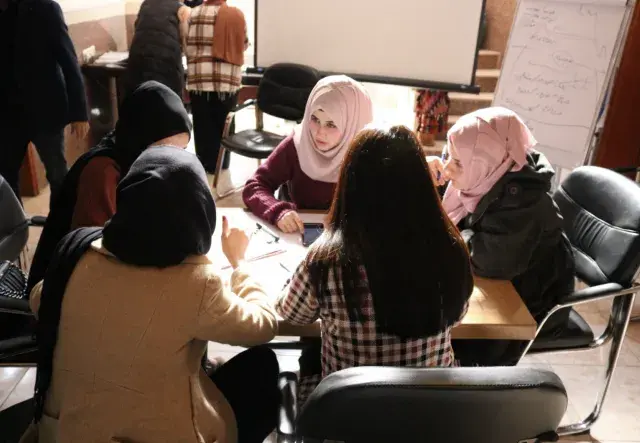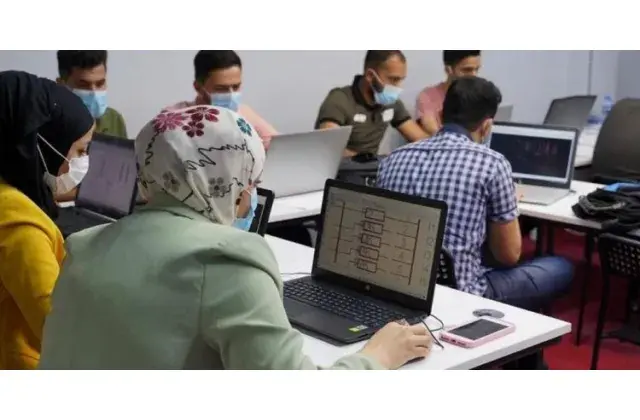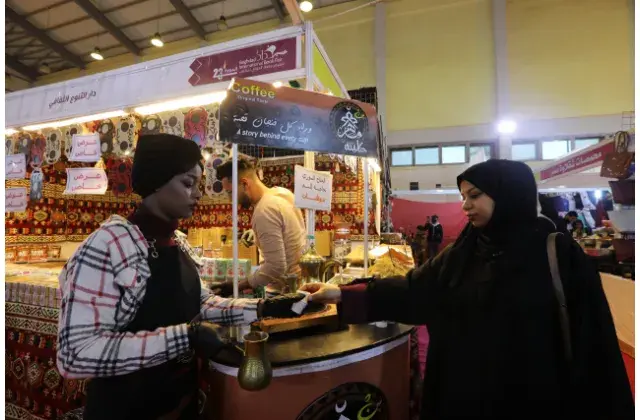Facing an ongoing challenge, as it were ... Empowering Iraqi women in the private sector, and their economic role

According to the definition of the World Social Science Report Women's Empowerment refers to awareness-raising, understanding, and readiness among women themselves. It means that women should enhance their sense of power and self-reliance, and their capacity for decision-making, management, changing behaviours and attitudes, and breaking the cycle of social, economic, and political marginalisation, along with practising them in particular.
Throughout a decade in the Middle East, only 20.5% of women have participated in the workforce. This has led the UN to develop programmes that can support the civil society and the private sector, in order to achieve economic empowerment for women, as one of the sustainable development goals which many peoples in the world, including in Iraq, aspire to achieve.
Years of conflict and instability have created serious challenges for women in Iraq. Women who are at the working age and looking for a job are no more than 13%. This rate is extremely lower than that of men's participation in the job market, at 72%, and is also lower than the regional average of 22% in MENA region, according to statistics by the World Bank.
Enhancing Women's Economic Empowerment in Iraq
Currently, women’s empowerment is gaining global interest, and the Arab States have put this concern among their priorities. However, this is not the case in Iraq, where the rate of women's employment declined from 0.4% in 2017 to 0.2% in 2019. These are very low levels that need to be highlighted, in addition to studying the situation of Iraqi women in the job market, and the renewed challenges they face. The challenges to strengthening Iraqi women in the private sector are a problem worthy of attention. After all, women represent half of the society, and overcoming the obstacles that prevent their participation in building this society is one of the most important mechanisms for empowering them and enhancing their role.
The presence of women in jobs and State sectors contributes generally to increasing the state's GDP. In the MENA region, only 20.5% of women participate in the workforce, and estimates show that 33% of women in the region participate in vulnerable employment, in comparison to 23% of men. Moreover, the representation of women is higher in low-wage jobs, whereas only a few women are in senior position in the region, according to UN reports.
Obstacles to Women’s Empowerment
Iraq has been through several conflicts and instabilities that precluded empowering Iraqi women in different aspects of life. This has led to increased challenges and obstacles for Iraqi women that prevented them from obtaining their most basic rights as women in the society. Regarding the barriers to women's empowerment, these can be represented by multiplicity of roles and pressures that women suffer to get untraditional jobs, in addition to the lack of social awareness of the importance of women's role. Furthermore, women are unable to take the decision of participating in some jobs due to social and cultural barriers such as the unavailability of day care centres, and the norms and traditions that restrict the participation of women in a lot of jobs. The society has not accepted women's involvement in jobs that men handle, and many families do not approve of a getting job where there is communication between men and women. This is added to the low levels of financial inclusion, and other structural obstacles.
In addition to the above, there is a widespread preference in society for jobs in the public sector. Norms and traditions still prevail about the typical role of women in the house, and that there is no need for them to work and participation in the society. This is the situation of Saja, whose family reject working in the public sector. She says, “I graduated from the Faculty of Computer Science more than five years ago, and I did not get a job in the government. When I want to apply for a job in the public sector, my family refuses because they deem a job insignificant unless it is with the government.” Furthermore, conflict and instability resulted in a diminished access to services, and a recession in laws that disadvantaged women and girls more than others, especially under ISIS, and the displacement and problems that affected a lot of Iraqi women. This has made it difficult for them to get jobs.
Regarding the obstacles in entrepreneurship for women, and empowering female entrepreneurs, a study identified four basic obstacles for female entrepreneurs that preclude gender equality in this field, and they are maternity, understanding entrepreneurship, the criteria, and the funding. Financial support (funding) is among the most significant issues that hinder women’s participation in entrepreneurship and the private sector. These barriers can be a result of various aspects, including the attitudes adopted towards women’s participation in the society. According to a joint report by UN Women and Oxfam, only 6.8% of firms in Iraq have female ownership.
Addressing the Challenges to Women’s Empowerment
In order to advance and compete with other countries, Iraq needs a true partnership between men and women; a partnership where the homeland is the cornerstone on which it aspirations and ambitions are built. Gender equality contributes to the advancement of societies’ economies and sustainable development, ensuring a better life for the entire society.
The percentage of women in Iraq is 49.7%, which means that women literally represent half of Iraq’s population. How would the future be if this half suffered from social, familial, and economic discrimination, along with other forms of difficulties, for the mere fact of being a female?
Obviously, the development of a society or a country cannot be attained when half of its population is not developed.
Despite having the quota system in Iraq, women are still far from equality in many aspects of life. One of the most important ways to help women’s empowerment in the society is education. This is the most effective weapon through which we can change the world. It is an essential step towards women's empowerment, and achieving all the comprehensive economic developments in the country. When women are granted equal rights for an equal access to education, they can maintain their participation in the economic activity of this country. Educating women is sufficient for preparing them to be part of the workforce and the society. 47% of women are below poverty line, but when they have equal rights to education, they will be able to participate in the economic activity. Women can increase the capacities for fighting present and anticipated poverty through helping in the work and production in the society because education is the indispensable means for equipping women with appropriate skills. Moreover, there are special problems that rural women face, where 32% of them are illiterate, and suffer from the repercussions in education, food insecurity, and participation in the private sector.
At the end, the Iraqi government must seek to confront challenges to women’s empowerment, and work to put an action plan for the economic empowerment of women, to pave the way for the future. It should also address the economic inclusion of women and the barriers through cooperation with the private sector to develop the capacities of female entrepreneurs through business incubators, and for rural women through vocational training activities and coordination with NGOs to fully participate in the activities that aim at economic empowerment for Iraqi women. In addition, the government should take into consideration putting budgets that can achieve gender equality.
This article was written by Fatima Nemeh and is licensed under CC BY-NC 4.0.






